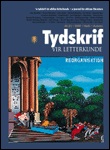Legitimizing the invented Congolese space: The gaze from within in early Congolese fiction
DOI:
https://doi.org/10.4314/tvl.v46i1.29839Keywords:
Congolese literature, Lomami Tchibamba, Joseph Conrad, Nele Mariam, colonial literature, exotic literatureAbstract
Postcolonial discourses describe colonization as a process of invention to impose the will of a conquering West on “backward” societies. The will to power conjugated with the need for raw materials served as the main catalysts. They put side by side a hegemonic intruder bent on duplicating itself, and a powerless and compliant native unable to react to the blitz of transformations. Hence, the master/slave or father/child relationships that describe the colonial framework. The task is to interrogate these generally accepted assumptions and binary oppositions. Although marginalized, the Congolese native was unwilling to become an object for the colonizer’s gaze. In fact, the inability to expel the “invader” did not prevent the creation of legitimacies out of what was precipitously brought in. This mechanism of transformation is perceptible in Paul Lomami Tchibamba’s novel Ngando (1948), the object of this study. Ngando’s imagined colonial city stands out as a site of contrasts and contradictions. However, the duplicated model shows the “transformability” of the new space into “normalcy” by a subversive native.
Downloads
References
...
Downloads
Published
How to Cite
Issue
Section
License
Copyright (c) 2018 Tydskrif vir Letterkunde

This work is licensed under a Creative Commons Attribution-ShareAlike 4.0 International License.


 https://orcid.org/0000-0001-6465-6584
https://orcid.org/0000-0001-6465-6584


.png)